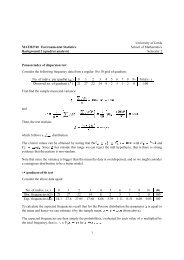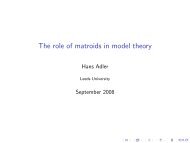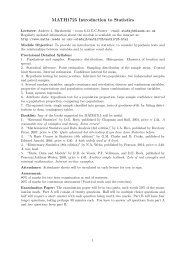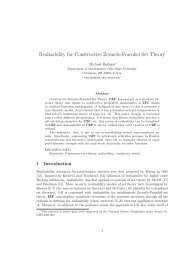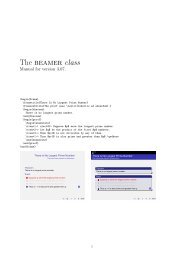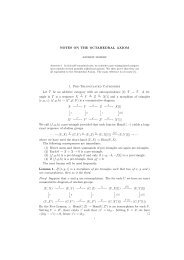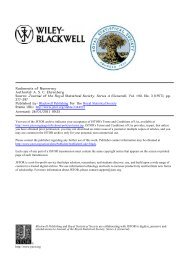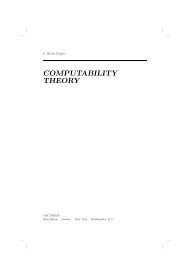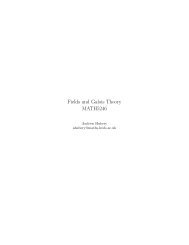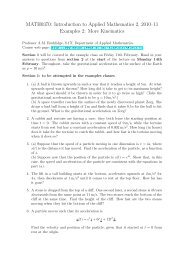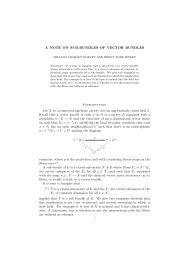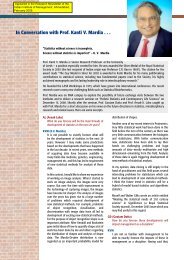Admissions policy - School of Mathematics - University of Leeds
Admissions policy - School of Mathematics - University of Leeds
Admissions policy - School of Mathematics - University of Leeds
You also want an ePaper? Increase the reach of your titles
YUMPU automatically turns print PDFs into web optimized ePapers that Google loves.
equal access to our admissions procedures and programmes. The judgment about anindividual applicant’s academic suitability will be kept separate from any consideration <strong>of</strong> theapplicant’s disability-related support requirements.Applicants are invited to indicate their disability status on their application form and westrongly encourage applicants to disclose any disability. Where candidates choose not todisclose their disability this may make it more difficult, or in some cases impossible, for the<strong>University</strong> to make reasonable adjustments. Disabled applicants are also advised to contactthe <strong>University</strong>’s Disability Team (part <strong>of</strong> the <strong>University</strong>’s Equality Service) once anapplication has been submitted, to discuss any support requirements they may have inrelation to the programme for which they have applied.The admissions process is covered by the <strong>University</strong>’s Policy on Equality and Diversitywhich is available from the <strong>University</strong>'s Equality Service at www.equality.leeds.ac.uk.3.7 Applicants with a health-related issue or other mitigating circumstanceThis section deals with health-related issues, 2 which are distinct from disability-relatedissues. Applicants with a health-related issue should contact the relevant <strong>Admissions</strong> Tutoras soon as possible if their health is likely to impact on their ability to engage with theadmissions process.If a candidate feels that their prior ill-health – or personal circumstances other than ill-health(for example, bereavement or other difficult home or family circumstances) – may haveaffected their previous education, or the grades they received in past examinations, thenthey are also welcome to contact the <strong>School</strong> to discuss this further. All formal requests formitigating circumstances to be taken into account in the admissions process should besupported by a full declaration about the nature <strong>of</strong> the circumstances.3.8 Applicants wishing to defer/reapplyDeferral <strong>of</strong> a place to study is at the discretion <strong>of</strong> the academic <strong>School</strong> and is strictly limitedto a maximum <strong>of</strong> one academic year. Applicants who are unable to take up their <strong>of</strong>fer <strong>of</strong> aplace on a Taught Postgraduate programme can defer their application for one yearproviding they have met all the conditions <strong>of</strong> their <strong>of</strong>fer except for English LanguageCertificate. If an applicant wishes to defer for more than one year then they will be requiredto reapply.3.9 Criminal convictionsThe <strong>University</strong> has a <strong>policy</strong> statement on students with criminal records, which can beaccessed from our website at http://www.leeds.ac.uk/AAandR/st_crim_rec.htm. This <strong>policy</strong>includes applicants seeking admission. It should be noted that if an applicant is required todisclose a criminal <strong>of</strong>fence and fails to do so this will generally be considered a very seriousmatter and is likely to lead to their application being rejected or, if admitted, to theirregistration at the <strong>University</strong> being revoked.2In contrast with disability issues, health issues are generally shorter-term (lasting less than 12months) and have a less significant impact on a person’s ability to carry out normal day-to-dayactivities.5



